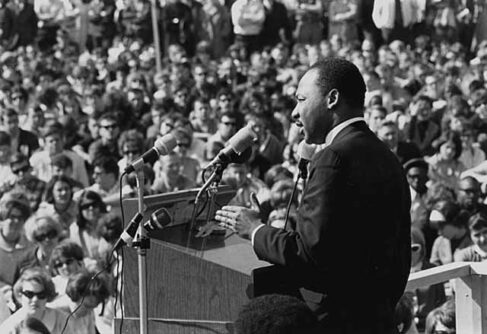However different twenty-first-century central Pennsylvania is from sixth-century-B.C. Ionia, Joe Patero’s legacy has something in common with that of Croesus, King of Lydia.
Croesus’ kingdom was the barrier between the rising Persian empire and the Greek kingdoms; he was extremely powerful and fabulously wealthy (hence our expression “as rich as Croesus”). Visited by the wise philosopher Solon, Croesus asked Solon who was the happiest man—fully expecting Solon to reply that he, Croesus, was happiest. When Solon instead replied that no man’s life can be judged before he dies, the piqued Croesus sent Solon away from the Lydian court.
Solon forgotten, Croesus received a prophesy that if he attacked Persia, he would destroy a mighty empire. Croesus attacked Persia and was defeated by the Persians under King Cyrus -- and Croesus realized too late that the mighty empire he destroyed was his own. As the vanquished Croesus was ordered onto a pyre by Cyrus to be immolated, Croesus cried out, “Solon! Solon! Solon!” Cyrus asked Croesus what he meant, and Croesus explained that he had understood too late the wisdom of Solon’s words and that, in spite of the power and wealth he had enjoyed, the denouement of his life showed that his life was not, after all, a happy one, and that truly no life can be judged before its end.
Paterno’s status in central Pennsylvania was king-like, and for good reasons: he was not only the winningest college football coach, but the Penn State program was known for doing things right and for graduating its players. The Penn State football program was the focus of community pride.
But the grand jury indictment against Paterno’s assistant coach Jerry Sandusky makes it nearly impossible to avoid the conclusion that the last decade of Paterno’s life was marred by profound failures, failures that allowed additional terrible crimes.
When these failures were revealed during what turned out to be the last weeks of Paterno’s life, Paterno never fully took responsibility for his part in what happened. His decade-long failure to act; his statement that he reported the allegations to “higher ups” when there was in fact no one more powerful on the Penn State campus than himself; his failure to resign immediately when the allegations broke; all this must be taken into account in assessing his final legacy. The Paterno family’s recent statements challenging whether Paterno is guilty of moral or leadership failures show that they too haven’t come to terms Joe Paterno’s mistakes.
Unlike Croesus, who acknowledged his failure and his hubris in supposing his life would continue to be wholly happily, there has been no acknowledgement from the Paternos that, in addition to his true accomplishments, Joe Paterno failed a crucial test. Paterno apparently suffered from a hubris that made it impossible for him to acknowledge the whole truth about his life and legacy.
The Paterno family, in announcing the gifts to the Penn State and community charity, had a chance to recognize Joe Paterno’s failures by words or by directing some of their charity to those who help victims like Sandusky’s. If only they had done so.






Joe attacked no Persian kingdom. He never defended his old friend Jerry Sandusky. He never broke any rules. You and an unbelievably hypocritical media, who have never and will never do for young people, his family, his church, and his community of Penn State close to what Paterno did, cannot even let him rest in peace. Even after his death he is hounded by inferiors. Please leave him alone. He made one huge mistake–and that was not in his handling of the Sandusky situation, it was more prosaic than that: he failed to retire when he should have. Even now the family shows more charity toward the Penn State that abandoned him than the institution that he literally built showed to him.